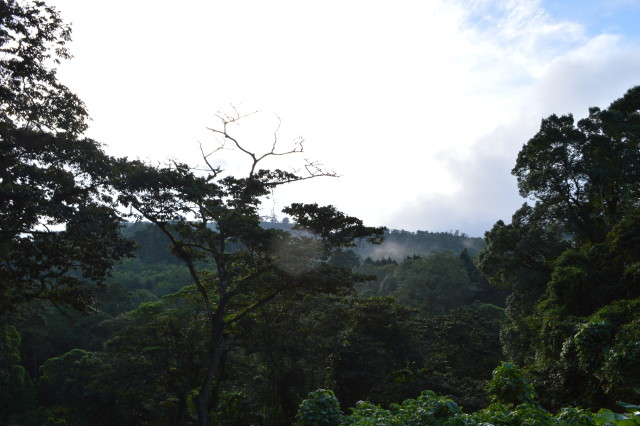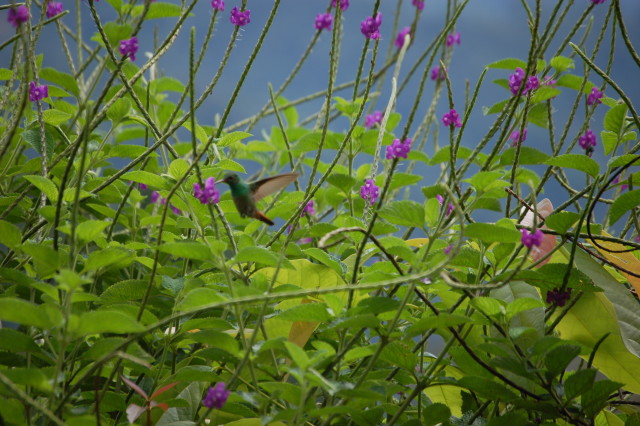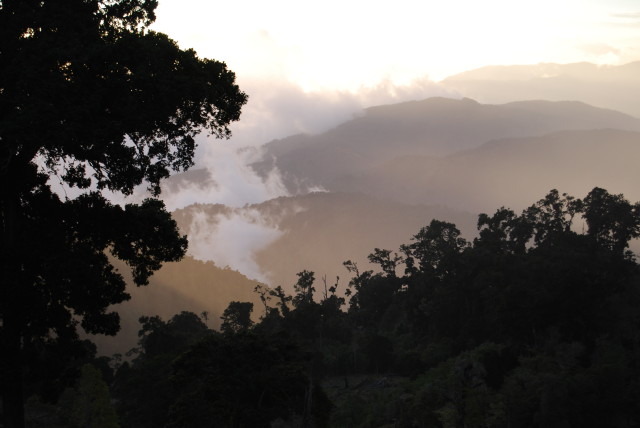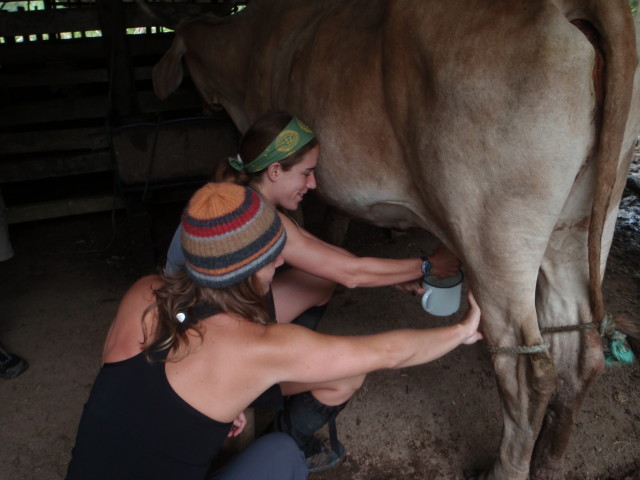 Despite being famous for its progressive environmental policies and the large numbers of National Parks it houses, Costa Rica remains one of the country with the highest deforestation rates in the world (around four percent a year). Unfortunately, this intense deforestation is a real and serious threat to the amazing biodiversity and ecosystems of Costa Rica.
Here are five revealing facts about deforestation and beef consumption:
– For every quarter pound fast-food hamburger that comes from the rainforest, 55 square feet of rainforest is detroyed.
– 2/3 of Central American agricultural land is now occupied by livestock – most of it destined for consumption in North America.
– In just 20 years, Costa Rica slashed and burned over 80% of its tropical forest to accommodate the increase globa appetite for beef.
– A small group of ranchers are becoming wealthier by exporting food to North America – some 35 million people are landless or own to little land to support themselves in Central America.
– A cleared rainforest rarely yields more than 5 years of productive ranching which is barely enough time to raise a single heard of cattle for slaughter.
Despite being famous for its progressive environmental policies and the large numbers of National Parks it houses, Costa Rica remains one of the country with the highest deforestation rates in the world (around four percent a year). Unfortunately, this intense deforestation is a real and serious threat to the amazing biodiversity and ecosystems of Costa Rica.
Here are five revealing facts about deforestation and beef consumption:
– For every quarter pound fast-food hamburger that comes from the rainforest, 55 square feet of rainforest is detroyed.
– 2/3 of Central American agricultural land is now occupied by livestock – most of it destined for consumption in North America.
– In just 20 years, Costa Rica slashed and burned over 80% of its tropical forest to accommodate the increase globa appetite for beef.
– A small group of ranchers are becoming wealthier by exporting food to North America – some 35 million people are landless or own to little land to support themselves in Central America.
– A cleared rainforest rarely yields more than 5 years of productive ranching which is barely enough time to raise a single heard of cattle for slaughter.
 Deforestation also is a threat worldwide and participates in climate change, notably global warming. Latin America is the region where deforestation for pasture lands has been the most intense, most of the time at the expense of the protection of forests. This is one of the most significant change in land use in Latin America over the last decades.
Deforestation also is a threat worldwide and participates in climate change, notably global warming. Latin America is the region where deforestation for pasture lands has been the most intense, most of the time at the expense of the protection of forests. This is one of the most significant change in land use in Latin America over the last decades.

For all these reasons, Outward Bound Costa Rica does not serve beef products to its students and staff at our bases or during our courses. We are also committed to supporting sustainable farms that share our values, while teaching Costa Rican and international students about the incredible natural habitats and diverse wildlife in the country. Upholding our no-beef policy is also an opportunity for instructors to explain to students how the economics of choice and environmental destruction are linked.

While this might sounds gloomy for Costa Rica and the world, many organizations are committed to combating this issue, and the government of Costa Rica has made a commitment for the country to be carbon neutral by 2021. In order to lower emissions due to livestock and improve the livelihoods of farmers, a project gathering national, public and private institutions has been launched to work on the issue and create sustainable livestock management.
To know more about our local involvement, go to our website, or subscribe to our Facebook Channel to get posts about the environment, Costa Rica’s wildlife and the outdoors. You can also check out our Gap Year Programs and Summer Expeditions. Facts in this article are from the Rainforest Action Network.